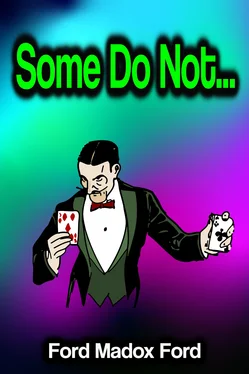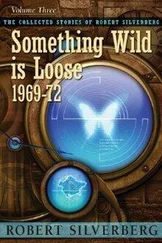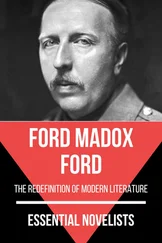And yet...He had had passages when a sort of blind unreason had attracted him almost to speechlessness towards girls of the most giggling, behind-the-counter order, big-bosomed, scarlet-cheeked. It was only Tietjens who had saved him from the most questionable entanglements.
'Hang it,' Tietjens would say, 'don't get messing round that trollop. All you could do with her would be to set her up in a tobacco shop, and she would be tearing your beard out inside the quarter. Let alone you can't afford it.'
And Macmaster, who would have sentimentalized the plump girl to the tune of Highland Mary , would for a day damn Tietjens up and down for a coarse brute. But at the moment he thanked God for Tietj ens. There he sat, near to thirty, without an entanglement, a blemish on his health, or a worry with regard to any woman.
With deep affection and concern he looked across at his brilliant junior, who hadn't saved himself. Tietjens had fallen into the most barefaced snare, into the cruellest snare, of the worst woman that could be imagined.
And Macmaster suddenly realized that he wasn't wallowing, as he had imagined that he would, in the sensuous current of his prose. He had begun spiritedly with the first neat square of a paragraph...Certainly his publishers had done well by him in the matter of print:
'Whether we consider him as the imaginer of mysterious, sensuous and exact plastic beauty; as the manipulator of sonorous, rolling and full-mouthed lines; of words as full of colour as were his canvases; or whether we regard him as the deep philosopher, elucidating and drawing his illumination from the arcana of a mystic hardly greater than himself, to Gabriel Charles Dante Rossetti, the subject of this little monograph, must be accorded the name of one who has profoundly influenced the outward aspects, the human contacts, and all those things that go to make up the life of our higher civilization as we live it to-day...'
Macmaster realized that he had only got thus far with his prose, and had got thus far without any of the relish that he had expected, and that then he had turned to the middle paragraph of page three--after the end of his exordium. His eyes wandered desultorily along the line:
'The subject of these pages was born in the western central district of the metropolis in the year...'
The words conveyed nothing to him at all. He understood that that was because he hadn't got over that morning. He had looked up from his coffee-cup--over the rim--and had taken in a blue-grey sheet of notepaper in Tietjens' fingers, shaking, inscribed in the large, broad-nibbed writing of that detestable harridan. And Tietjens had been staring--staring with the intentness of a maddened horse--at his, Macmaster's, face! And grey! Shapeless! The nose like a pallid triangle on a bladder of lard! That was Tietjens' face...
He could still feel the blow, physical, in the pit of his stomach! He had thought Tietjens was going mad; that he was mad. It had passed. Tietjens had assumed the mask of his indolent, insolent self. At the office, but later, he had delivered an extraordinarily forceful--and quite rude--lecture to Sir Reginald on his reasons for differing from the official figures of population movement in the western territories. Sir Reginald had been much impressed. The figures were wanted for a speech of the Colonial Minister--or an answer to a question--and Sir Reginald had promised to put Tietjens' views before the great man. That was the sort of thing to do a young fellow good--because it got kudos for the office. They had to work on figures provided by the Colonial Government, and if they could correct those fellows by sheer brain work--that scored.
But there sat Tietjens, in his grey tweeds, his legs apart, lumpish, clumsy, his tallowy, intelligent-looking hands drooping inert between his legs, his eyes gazing at a coloured photograph of the port of Boulogne beside the mirror beneath the luggage rack. Blond, high-coloured, vacant apparently, you couldn't tell what in the world he was thinking of. The mathematical theory of waves, very likely, or slips in someone's article on Arminianism. For absurd as it seemed, Macmaster knew that he knew next to nothing of his friend's feelings. As to them, practically no confidences had passed between them. Just two:
On the night before his starting for his wedding in Paris Tietjens had said to him:
'Vinny, old fellow, it's a back door way out of it. She's bitched me .'
And once, rather lately, he had said:
'Damn it I I don't even know if the child's my own!'
This last confidence had shocked Macmaster so irremediably--the child had been a seven months' child, rather ailing, and Tietjens' clumsy tenderness towards it had been so marked that, even without this nightmare, Macmaster had been affected by the sight of them together--that confidence then had pained Macmaster so frightfully, it was so appalling, that Macmaster had regarded it almost as an insult. It was the sort of confidence a man didn't make to his equal, but only to solicitors, doctors, or the clergy who are not quite men. Or, at any rate, such confidences are not made between men without appeals for sympathy, and Tietjens had made no appeal for sympathy He had just added sardonically:
'She gives me the benefit of the agreeable doubt. And she's as good as said as much to Marchant'--Marchant had been Tietjens' old nurse.
Suddenly--and as if in a sort of unconscious losing of his head--Macmaster remarked:
'You can't say the man wasn't a poet!'
The remark had been, as it were, torn from him, because he had observed, in the strong light of the compartment, that half of Tietjens' forelock and a roundish patch behind it was silvery white. That might have been going on for weeks: you live beside a man and notice his changes very little. Yorkshire men of fresh colour and blondish hair often go speckled with white very young; Tietjens had had a white hair or two at the age of fourteen, very noticeable in the sunlight when he had taken his cap off to bowl.
But Macmaster's mind, taking appalled charge, had felt assured that Tietjens had gone white with the shock of his wife's letter: in four hours! That meant that terrible things must be going on within him; his thoughts, at all costs, must be distracted. The mental process in Macmaster had been quite unconscious. He would not, advisedly, have introduced the painter-poet as a topic.
Tietjens said:
'I haven't said anything at all that I can remember.' The obstinacy of his hard race awakened in Macmaster:
'"Since",' he quoted,
"when we stand side by side
Only hands may meet,
Better half this weary world
Lay between us, sweet!
Better far tho' hearts may break
Bid farewell for aye!
Lest thy sad eyes, meeting mine,
Tempt my soul away!"
'You can't,' he continued, 'say that that isn't poetry Great poetry.'
'I can't say,' Tietjens answered contemptuously. 'I don't read poetry except Byron. But it's a filthy picture...'
Macmaster said uncertainly:
'I don't know that I know the picture. Is it in Chicago?' 'It isn't painted!' Tietjens said. 'But it's there!' He continued with sudden fury:
'Damn it. What's the sense of all these attempts to justify fornication? England's mad about it. Well, you've got your John Stuart Mills and your George Eliots for the high-class thing. Leave the furniture out! Or leave me out at least. I tell you it revolts me to think of that obese, oily man who never took a bath, in a grease-spotted dressing-gown and the underclothes he's slept in, standing beside a five-shilling model with crimped hair, or some Mrs. W. Three Stars, gazing into a mirror that reflects their fetid selves and gilt sunfish and drop chandeliers and plates sickening with cold bacon fat and gurgling about passion.'
Читать дальше












